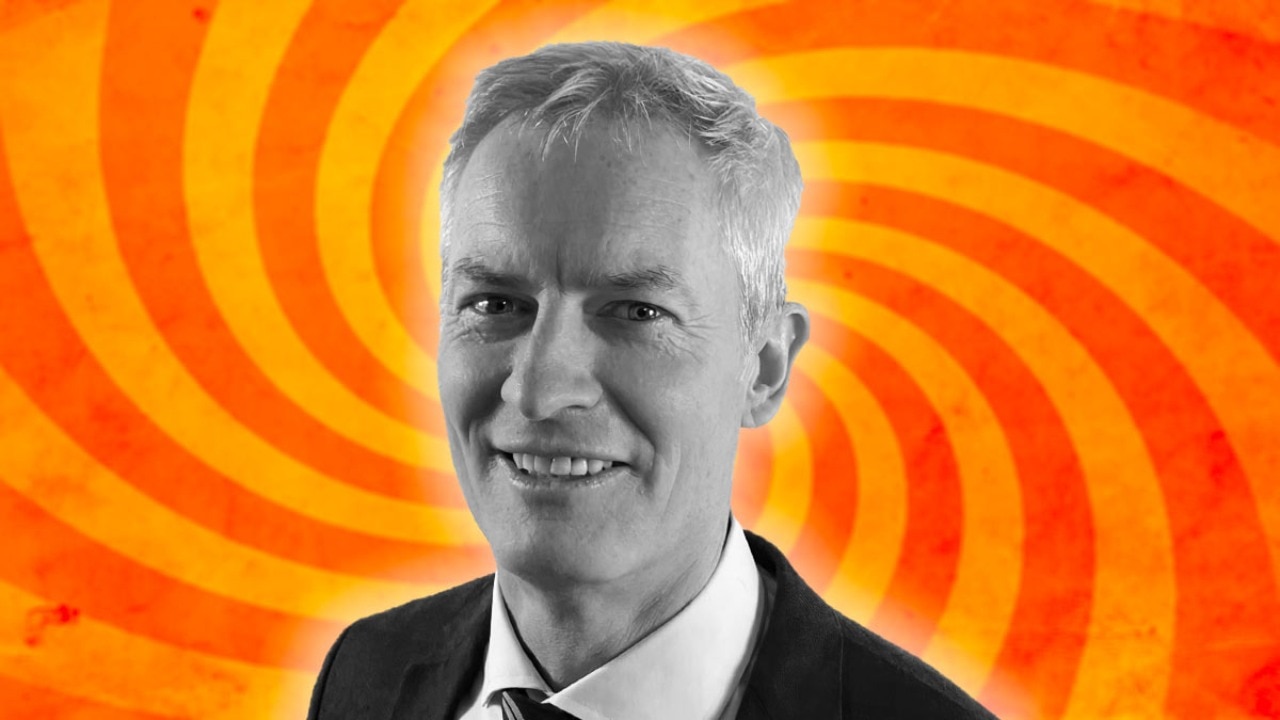Biocurious: With psychedelic therapies gaining cred, Tryptamine offers patients and investors the trip of a lifetime
In a world first, Tryptamine Therapeutics is using intravenously delivered psilocybin in a binge-eating disorder clinical trial.

Stockhead
Don't miss out on the headlines from Stockhead. Followed categories will be added to My News.
Tryptamine is focused on using psilocybin to treat difficult mental health and neurological conditions
In league with Swinburne University, the company will launch a groundbreaking binge eating disorder trial using intravenous delivery
With government and regulatory attitudes rapidly evolving, the company says the first FDA-approved psychedelic treatment is nigh
The CEO of local psychedelic drug developer Tryptamine Therapeutics (ASX:TYP), CEO Jason Carroll isn’t afraid to make the big call.
His bold prediction?
The US Food & Drug Administration (FDA) will approve a mind-altering agent for a broad mental health indication by the end of next year, after decades of psychedelics being in the drug-development wilderness.
Carroll says several drug developers are close to amassing enough clinical data to front the agency.
The Nasdaq-listed Compass Pathways is in phase III trial stage for using psilocybin – a.k.a. ‘magic mushrooms’ – for treatment-resistant depression (TRD).
A read-out is due later this year.
“Compass will have the data buttoned down and I think they will present a good proposal to the FDA,” he says.
“They will produce the data the world wants to see on psilocybin and its efficacy.”
Most drug developers don’t exactly wish their rivals the best of success, but Carroll says what’s good for Compass benefits the whole nascent sector.
“It will help the market to understand there is a viable pathway to approval.”
Turn on, tune in and don’t drop out
In the early 1970s Richard Nixon’s war on drugs halted medical research on psychedelics, which had amassed plenty of – er – real-world evidence in the 1960s.
Trippy hippies aside, hundreds of formal LSD trials had been carried out since the 1940s.
As the protest-era Bob Dylan crooned, the times they are a-changin’.
In 2019 the FDA granted psilocybin ‘breakthrough’ status, enabling potentially fast-track registration.
In a February 2023 surprise, the Australian Therapeutic Goods Administration said it would allow authorised psychiatrists to prescribe psilocybin and MDMA (a.k.a. molly or ecstasy).
This was to treat TRD and post-traumatic stress disorder (PTSD) respectively.
Now, new US health secretary Robert F Kennedy Junior keenly supports advancing psychedelic therapies.
Carroll says while the laws are changing, “the challenge is to bring pharmaceutical rigour to the category”.
In effect, the sector needs to transcend the reputation of the microdosing worried well at $1000 a night at Californian wellness retreats, as portrayed by Nicole Kidman's character in Nine Perfect Strangers.
“The world needs to see efficacy data, not just trendy buzzwords,” he says.
Make room for the 'shroom
Tryptamine’s drug of choice – so to speak – is a synthetic version of psilocybin, the active ingredient in magic mushrooms.
Psilocybin currently is being researched in no fewer than 25 indications.
Tryptamine is targeting three overlooked disorders: binge eating disorder (BED), fibromyalgia and irritable bowel syndrome (IBS).
IBS affects about 6-8% of the population, BED 2-3% and fibromyalgia 3-5%.
“These are significant conditions, and they are less discussed from a neurological viewpoint,” Carroll says.
Tryptamine has completed phase II studies for BED and fibromyalgia, while an IBS study is ongoing.
These trials have used an oral version of the drug, TRP-8802.
In a world first, the company is poised to carry out a BED trial using an intravenous (IV) infused version, TRP-8803.
TRP-8803 uses the psilocybin metabolite psilocin.
IV takes the direct route
Carroll says IV delivery is better controlled, with a faster effect because the agent goes directly from bloodstream to brain.
While oral delivery is more convenient, IV infusions ensure the products are taken in the right dosage under the right supervision.
“The results are known quickly, whereas with oral delivery it takes one or three hours for an effect,” he says.
IV delivery offers practical and commercial benefits, because an oral patient might have to be in the supervised clinic for up to 10 hours.
“If you can treat four or five patients in a day instead of one, it makes a significant difference.”
IV delivery also avoids the big variabilities in the level of patient-by-patient responses, which are hit or miss.
The BED trial follows an IV safety study in Adelaide last year, enrolling 14 healthy volunteers.
Let’s put binge eating to BED
BED is the most common eating disorder in the US and second most prevalent in Australia.
Patients may suffer depression, anxiety, PTSD and compulsive behaviours.
Carried out at the University of Florida, the phase 2a TRP-8802 trial showed a mean reduction of more than 80% in binge eating, as well as a 60% reduction in anxiety and 45% decline in depression.
This was after a single dose, over three to four months.
Tryptamine last month inked a clinical trial research deal with Swinburne University, by which the house of learning carries out the world’s first BED trial using the IV-based TRP-8803.
Starting in the June quarter, the study entails two six-person cohorts being dosed two weeks apart (accompanied by psychotherapy).
Each cohort will receive two doses, either high or mid-range.
The trial assesses the safety, feasibility and efficacy of TRP-8803.
The company expects top-line results from the open-label study in the December quarter.
Fibromyalgia and IBS
Suffered by about one million Australians and 10 million Americans, fibromyalgia stems from the brain and manifests itself as pain throughout the body.
Doctors often dismiss the condition as “all in the head” and they are right – but not in the dismissive manner intended.
The company’s five-patient study was done at the University of Michigan, which specialises in chronic pain.
Reported in August last year, the results showed not only reduced pain, but improved sleep and cognitive functions.
Meanwhile the trial of the ‘neuro-gastric’ condition IBS was done at the esteemed Massachusetts General Hospital.
Interim results last December showed a 75% pain reduction in the first four of up to 10 patients, as well as a “meaningful decrease” in anxiety.
Tryptamine expects final results by mid 2025.
Cashed up and ready to dose
Courtesy of a $6 million placement last year, Tryptamine held cash of $4.58 million as of the end of March, with a further R&D tax refund of $900,000 to $1 million to come.
Carroll says this will fully fund the study.
The placement was backed by luminaries including Dr Daniel Tillett, a medical entrepreneur and the force behind cancer drug developer Race Oncology.
Tillett has become a Tryptamine non-executive director.
Carroll says Tryptamine is happy to stick with psilocybin, rather than dabble in MDMA, LSD or the ultra-trendy horse tranquilliser ketamine.
“Psilocybin is the gold-standard psychedelic,” he says.
“It’s the safest because it’s non-addictive with a high dosage needed to make you ill.”
Ultimately, psychedelics are not so much about blocking the pain, but re-wiring how the brain works.
“People with depression have a certain way of thinking about themselves and if you break that cycle, they will be much more comfortable with their condition.”
At Stockhead, we tell it as it is. While Tryptamine is a Stockhead advertiser, the company did not sponsor this article
Originally published as Biocurious: With psychedelic therapies gaining cred, Tryptamine offers patients and investors the trip of a lifetime


